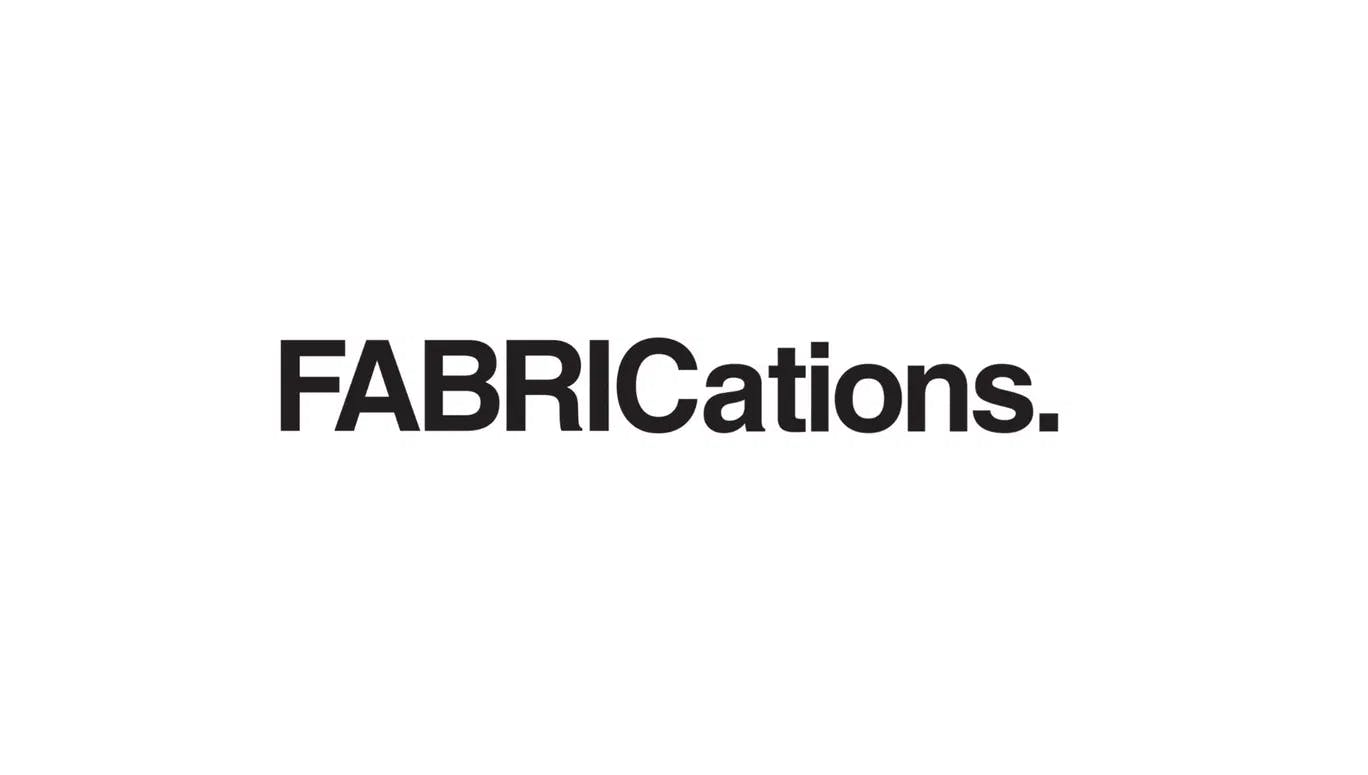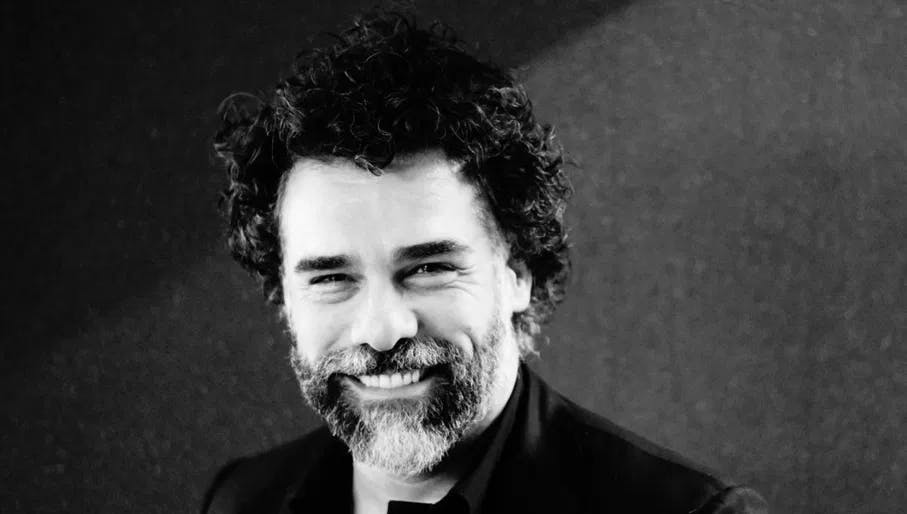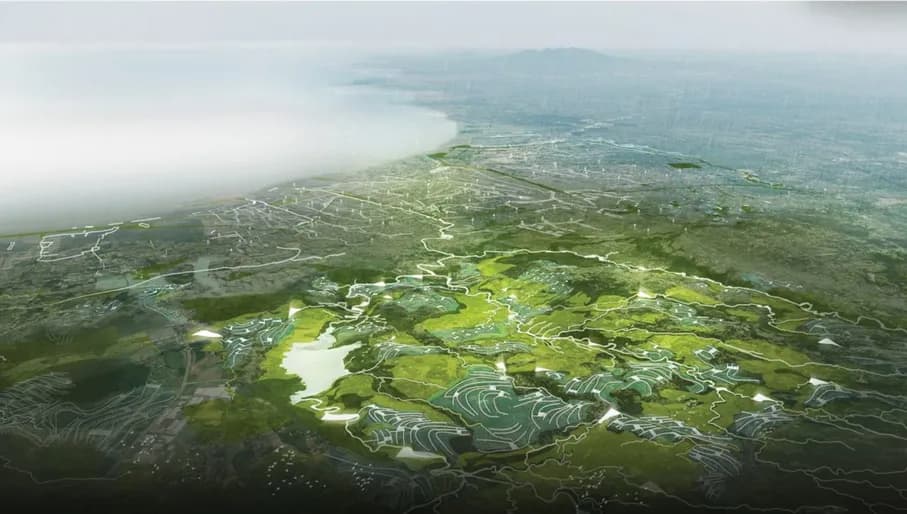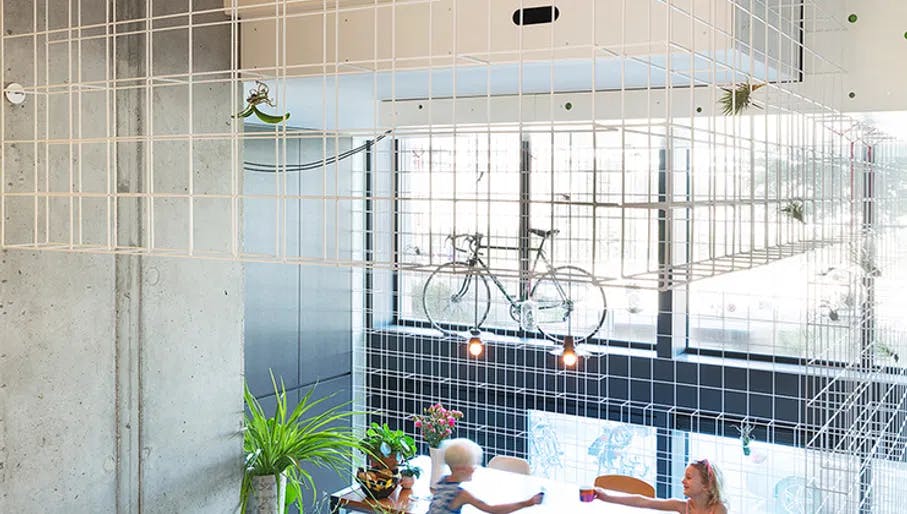
#FoundersFridays: Meet Bibi Schmidt
21 May 2025

Amsterdam is filled with sustainable buildings and a community of people who develop, design and create them. De Ceuvel in Noord grows organic produce onsite for its café, Park20|20 uses greenery to help bees and butterflies and VERTICAL is bringing eco-friendly living to Sloterdijk. Even sports fans are getting in on the action as Johan Cruijff ArenA has become one of the world’s most sustainable stadiums, with a roof generates power through thousands of solar panels.
The creative minds responsible for this community are driven by a desire for a sustainable future, and Eric Frijters is helping to lead the charge. As the co-founder and director of FABRICations, a firm specialising in architectural design, urban planning and regional strategies, he’s not shy about his vision. “We have an agenda,” he says from his office in central Amsterdam. “The agenda is changing environments.”

However, having a clear agenda doesn’t always lead to tangible results. “We produce books and written pieces and illustrate futures that aren’t there yet. We also investigate the consequences of circularity for cities and buildings, and what it means to design a healthier environment,” he explains. “They don’t always translate into physical realities. Sometimes, they’re just advice or guidelines. Sometimes it’s immaterial, sometimes it’s super concrete.”
Frijter's willingness to embrace different kinds of projects and focus on the theoretical was vital to the early success of FABRICations. In fact, the firm might've failed had the team pursued a more conventional path. According to Frijter:
“When we went to the KvK (Dutch Chamber of Commerce) to introduce our new business, we found out that there were about 458 architectural offices in Amsterdam. We thought it would be a very bad idea to become number 459.
So, the first thing we did – which was also how we earned our money – was to make a list of 20-25 people who we thought could answer the question, ‘What are the issues of tomorrow – what is the main challenge we will face?’ We interviewed business leaders, star designers - anybody we thought could answer that question - and published those articles. That’s how we earned our living before we were actually able to widen our scope and take on various activities that support our business model.”
Knowing the value of partnerships has enhanced the quality of FABRICations’ work and even helped it survive 2008’s financial crash. During that time Frijter says, “We discovered that real knowledge is required to come up with real solutions."
But how do you access that knowledge? The answer is simple: work with other experts.
“Getting the best results takes collaboration. It’s a lot of fun actually and it got us through the crisis. Our company was founded in 2007, and only a few months later the banks stopped working. We found that [the resulting] urge for collaboration and sharing of any commissions that came in resulted in a much more sustainable ecosystem. It was not [originally] intended to be like that, but it worked out in a very sustainable way to get us through the financial crisis.”
Working with others has also allowed FABRICations to successfully take on projects around the world. Whether it’s designing an urbanisation model in Indonesia or creating a sustainable economic development plan in Albania, Frijters and his team embrace working with other professionals, consultants and institutions to ensure the best outcome.

Research is a critical component of FABRICations’ work, and Frijters believes that a comprehensive knowledge base is required for success.
“There’s not a very critical knowledge body dealing with innovation in building, construction or spatial design. So, we decided to [create one]— to be curious, ask questions, and adopt technologies that aren’t usual practice in our discipline. Now we deal with data gathering, scraping websites and hacking other things to find the data that is not usually available.We learn the skills necessary to get the answers for a more sustainable future.”

Like everything FABRICations does, this project builds on collaboration, out-of-the-box thinking, and commitment to intensive research. Even though FABRICations is decidedly forward-looking, they keep site of their roots. As Frijter puts it, “We try to learn the skills of others to keep moving, but never forget our own.”